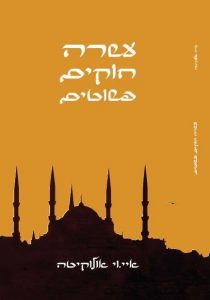
I.V. Olokita specializes in management of medical aid to disaster areas all over the world. He has a BA degree in logistics, and an MA degree in emergency and disaster situations management. He also volunteers to rescue missions in disaster areas all over the world. I. V. Olokita is a happily married father of two adolescents and a foster father of five cats and two dogs. By the way, he hardly ever sleeps. Instead, he spends his nights on writing.
Olokita’s first book (in Hebrew), Ten Simple Rules, was published in 2014. It won an Israeli literary prize, and immediately made an online bestseller. The following year, another book by Olokita, Reasons to Kill God, made a local bestseller in Israel. In May 2016, his third novel, Wicked Girl, was published, to make another great success, and soon presents in English. Olokita’s books are characterized by direct writing, Turns wiry and witty, requiring the reader to delve into and maintain vigilance from the beginning of the book to its surprising end.
Olokita contacted me to share an original short story on my blogblogblog (read here) and also graciously agreed to an interview. I liked his short story, so shared it as a Flash Fiction Friday guest author post. His books sound powerful; I look forward to English versions. Keep an eye open for this author’s work. Follow links at end of interview to connect with Olokita, and trailers to make you long for the books.
Describe your writing process. What is your writing schedule? Do you have an office in your home, or do you work at a remote location? What inspirations do you have for writing—people, places, or things? How do you choose your subject matter?
Since I’m almost out of the house because of my type of work, I do most of the writing in remote places and late at night. Sometimes there is no lighting, and usually, the electricity is minimal, so I don’t have many choices but improvise. Nevertheless, to this day I finished writing seven books, all of them I wrote on my cell phone, in my Gmail drafts. Sometimes my wife laughs at me in this matter. “Who writes books on a cell phone?” She asks me, and I don’t have the right answer, so I reply with a smile, “I do.”
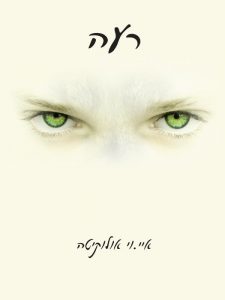
Usually, my subjects begin with a dream or, more precisely, a nightmare. Since I have engaged in this profession of wounded and dying people for almost twenty-five years, it is tough for me to sleep, and when I do so, I have bad dreams. So, I wake up immediately and start writing the chapters, and the whole writing process from that moment takes about one to two months until the book is ready for my beta readers to have their mind of it. My inspiration probably comes from sights and stories that I see and hear during work. Over time all these are processed and changed, taking another form. My books deal with the difficult issues of life, not necessarily dark, humorless stories, but most subjects that people don’t openly talk about—the worldview from the eyes of a Nazi criminal or a pedophile, the point of view of our perfect enemy, or that of the most cunning deceiver who ever entered our lives. All these are presented to the reader as one piece, so at the end of the insights, the reader can agree or deny them. In every story I write, there are at least three layers and many plots that intersect each other into an entire story that moves on a past-present timeline. The reader will enjoy the first reading of what the eye views; during the story he will try to guess where this story leads him. In this context, I have not met anyone who has read my books and managed to think the end of the story during the reading, at least not until he finished the last word of the book. Mainly because what happens in it depends very much on the perspective of the reader at the same point he is at, and his willingness to penetrate the story’s guts, sometimes even finishing the book and immediately rereading it to find this time he is reading a completely different one.
Tell me about your publishing process and your publishing team. How much input are you allowed? How much marketing is expected by you as the author?
Every time someone asks me what is important to me in my books, I reply that I want my stories to be read by as many people as can be. It’s not a matter of money or profit and loss. I have important things to tell the world, and this is my real calling. In that aspect, I was fortunate to be a beginner in Israel. When I published my books in Hebrew, they immediately received considerable attention. As far as I am concerned, it was a complete surprise, mainly because I am an indie writer who corresponded with his readers on Facebook and did not invest too much in marketing. The decision to go on Amazon in another language was not easy for me. There are many aspects here, each of which can significantly reduce the quality of the books— mainly translation and editing, but in this case, marketing is also a significant factor.

So, after I finally made the decision, I made a great effort to find the right professionals, and I’m glad I did, despite the enormous financial cost to me. I believe that the readers who will be exposed to my books will enjoy a high language and a story that stretches and is tightly written, just like in the original language. As for marketing, I rely on the group of professionals who stand behind me and support me; it will allow me to keep in touch with my readers and write them new books instead of spending my time marketing activities. As long as it’s up to me, I’ll go on like this until I’ve run out of money and the last reader in the world will read what I have to say.
Talk about your support system. Whose praise motivates you? Who keeps you motivated?
This will be a concise answer; I write because I have to write. Otherwise, I’ll probably go crazy. The only prize that interests me is the one I already won many years ago, a fantastic wife who contains my obsessions of writing books and allows me to spend all our money on them and two amazing children who, despite their adolescence, are still very proud of their father.
As a humanitarian, how does your life influence your writing? Does your writing influence your life?
I think I’ve written all my life, just from a young age. It was a mechanism I had developed to relieve all my frustrations and disappointments over the years. Writing accompanied me at school and later in my adult life without even planning to publish it as a book. In this sense, my life always influences my writing and vice-versa; everything I experienced went into my books and I processed into a story. Therefore, that everything becomes a story never bothers me anymore. As someone who is responsible for managing a complete medical response to extreme humanitarian events, this system helps me deal with the main sights, smells, and sounds that remain in me. Writing too, like psychological therapy, for example, does not clean everything out of your system, but allows me to continue to function and live a completely normal life.
What do you love most about your creativity?
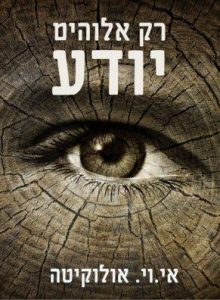
After I published my third book, questions began to arise that intrigued many of my readers, “Why are all your heroes bad people in essence, and why is the end of the story never good?” I think the answer to these questions is that even though we want to, our world is not a right place to live. I try in my books to show the other side of life, but people argue that despite the controversial issues and controversial characters, my books provide a more optimistic view of the world, basically, that we all end up only human beings, and the change begins with our understanding of each other’s motivation. I think it’s a matter of perspective that my books and short stories provide to the reader.
As for that legitimate question regarding my sources of inspiration about my written heroes, I have never known a Nazi criminal nor a pedophile, and I have no idea how they feel like in real life. However, I certainly give my heroes fears and desires, punish and reward them when I am sad or happy, and they end up getting a slice of my own life.
Connect with Olokita:
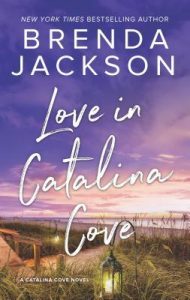 Vashti Alcindor inherits her aunt’s B&B in Catalina Cove, where she grew up, and where she ran away from over a decade ago. She wants to sell the business and put her hometown behind her for good. Enter the sexy, widowed sheriff. Then secrets come flying out of the past, changing Vashti in ways she would never have expected. The secrets are not so surprising, and some are a bit too coincidental, but in the end, a good story is hidden among the unnecessary repetition by multiple characters of Vashtis’ background and overly emoted revelations. A good beach read, a nice weekend romance read, Catalina Cove also shares a bit of Creole history, as it’s set on the coast of Louisiana, with a creole main character. I was graciously given an early copy by Harlequin through NetGalley.
Vashti Alcindor inherits her aunt’s B&B in Catalina Cove, where she grew up, and where she ran away from over a decade ago. She wants to sell the business and put her hometown behind her for good. Enter the sexy, widowed sheriff. Then secrets come flying out of the past, changing Vashti in ways she would never have expected. The secrets are not so surprising, and some are a bit too coincidental, but in the end, a good story is hidden among the unnecessary repetition by multiple characters of Vashtis’ background and overly emoted revelations. A good beach read, a nice weekend romance read, Catalina Cove also shares a bit of Creole history, as it’s set on the coast of Louisiana, with a creole main character. I was graciously given an early copy by Harlequin through NetGalley.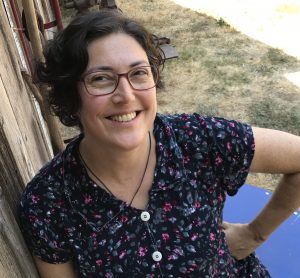 Jenny Jaeckel is the author of House of Rougeaux, her debut novel, which made Bitch Media’s 25 Must Read Books of 2018 list. Her previous titles include For the Love of Meat: Nine Illustrated Stories and Siberiak: My Cold War Adventure on the River Ob. In 2016, Jaeckel published the graphic memoir Spot 12: Five Months in the Neonatal ICU, which was the winner of the 2017 Next Generation Indie Book Awards and a 2016 finalist in the Foreword Indies Book Awards. She has worked as a translator, an editor, a Spanish teacher, a graphic arts teacher, and an illustrator. Jaeckel is currently working on her second novel, yet to be named, a continuation of the Rougeaux family epic.
Jenny Jaeckel is the author of House of Rougeaux, her debut novel, which made Bitch Media’s 25 Must Read Books of 2018 list. Her previous titles include For the Love of Meat: Nine Illustrated Stories and Siberiak: My Cold War Adventure on the River Ob. In 2016, Jaeckel published the graphic memoir Spot 12: Five Months in the Neonatal ICU, which was the winner of the 2017 Next Generation Indie Book Awards and a 2016 finalist in the Foreword Indies Book Awards. She has worked as a translator, an editor, a Spanish teacher, a graphic arts teacher, and an illustrator. Jaeckel is currently working on her second novel, yet to be named, a continuation of the Rougeaux family epic.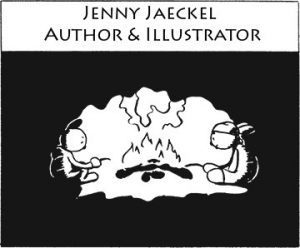 Wow, where to start… All the aspects of the process, whether internal or external are quite varied. As a writer, I have to have a whole mental “team” going on: the passionate one, the researcher, the emotional digger/investigator, the critic, the cheerleader, the scheduler, etc. etc. My biggest inspirations are my favorite books, the ones I love with all my heart and soul, and have made me want to be a writer in the first place. I always aspire to those literary heroes. They function like my North Star. I may be down in my clunky little rowboat, with my one broken oar, paddling furiously and getting nowhere, but when I look up, at least I know where I’m trying to go. J.D. Salinger, Toni Morrison, Merce Rodoreda, Eduardo Galeano, and Edith Wharton are some that I return to again and again.
Wow, where to start… All the aspects of the process, whether internal or external are quite varied. As a writer, I have to have a whole mental “team” going on: the passionate one, the researcher, the emotional digger/investigator, the critic, the cheerleader, the scheduler, etc. etc. My biggest inspirations are my favorite books, the ones I love with all my heart and soul, and have made me want to be a writer in the first place. I always aspire to those literary heroes. They function like my North Star. I may be down in my clunky little rowboat, with my one broken oar, paddling furiously and getting nowhere, but when I look up, at least I know where I’m trying to go. J.D. Salinger, Toni Morrison, Merce Rodoreda, Eduardo Galeano, and Edith Wharton are some that I return to again and again.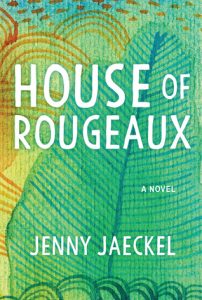 One of the most key parts of the process for me is working with my editor, Neesa Sonoquie. When I first showed her the manuscript for House of Rougeaux, I thought it was in pretty good shape. I’d already gotten some feedback from readers I trusted and done a lot of revising. But I had not worked with Neesa before. She absolutely demolished it. I’d sent off a book and got back confetti. It was humbling, but it turned out to be a transcendent moment. The revision process transformed the book and made me grow tremendously as a writer.
One of the most key parts of the process for me is working with my editor, Neesa Sonoquie. When I first showed her the manuscript for House of Rougeaux, I thought it was in pretty good shape. I’d already gotten some feedback from readers I trusted and done a lot of revising. But I had not worked with Neesa before. She absolutely demolished it. I’d sent off a book and got back confetti. It was humbling, but it turned out to be a transcendent moment. The revision process transformed the book and made me grow tremendously as a writer.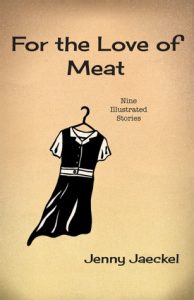 I don’t exactly have a cheerleading squad, but I have a small group of friends and acquaintances who have, at one time or another, said, or written some very wonderful things about how my work has touched them. When I get this in an email, for example, I print it out and put in on the wall by my bed, where I have a little collection, and when I get discouraged, I read them over and over. I also talk pretty regularly with three writer friends of mine. Though we all deal in different genres, the process and the struggle are the same, and being able to engage in that mutual support is essential. My lovely family is very supportive too. My partner and child give me regular feedback on my blog posts and written interviews (like right this second).
I don’t exactly have a cheerleading squad, but I have a small group of friends and acquaintances who have, at one time or another, said, or written some very wonderful things about how my work has touched them. When I get this in an email, for example, I print it out and put in on the wall by my bed, where I have a little collection, and when I get discouraged, I read them over and over. I also talk pretty regularly with three writer friends of mine. Though we all deal in different genres, the process and the struggle are the same, and being able to engage in that mutual support is essential. My lovely family is very supportive too. My partner and child give me regular feedback on my blog posts and written interviews (like right this second).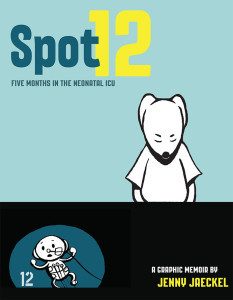 Art and life have a complete interface for me, like body and mind, or heads and tails sides of a coin. My first three books were all memoirs, the next two pure fiction, so while my relationships to all those topics varied, it was all deeply personal. When writing memoir, it has been much easier for me to see the therapeutic aspects of storytelling. Curiously though, putting key chunks of my life into these packages called books has made me identify with the stories less, as if these events happened to a human, and that human just happened to be me. It’s very liberating.
Art and life have a complete interface for me, like body and mind, or heads and tails sides of a coin. My first three books were all memoirs, the next two pure fiction, so while my relationships to all those topics varied, it was all deeply personal. When writing memoir, it has been much easier for me to see the therapeutic aspects of storytelling. Curiously though, putting key chunks of my life into these packages called books has made me identify with the stories less, as if these events happened to a human, and that human just happened to be me. It’s very liberating.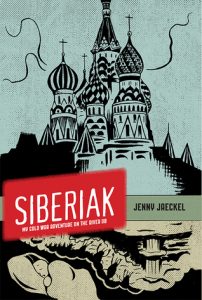 I am grateful to creativity for being the force that animates me. I think without it I’d be a lifeless hulk, a Frankenstein’s Monster pre-electrification, misshapen and covered in scars and moldy clothes (but smaller). I was lucky that as a child I was encouraged in art (so many are discouraged or even shamed for their efforts,) and lucky that since then I’ve had countless opportunities to grow creatively. Creativity takes infinite forms, I think it’s our birthright as human beings, and I think the more we can bring it to all aspects of our lives the better off we are. Once I heard the singer Krishna Das say in an interview that his music was how he stayed alive. He didn’t say music was his bliss and all that, he said it was how he literally stayed alive. I really appreciated that. It’s survival. Creativity is not the icing on the cake, it’s the cake itself.
I am grateful to creativity for being the force that animates me. I think without it I’d be a lifeless hulk, a Frankenstein’s Monster pre-electrification, misshapen and covered in scars and moldy clothes (but smaller). I was lucky that as a child I was encouraged in art (so many are discouraged or even shamed for their efforts,) and lucky that since then I’ve had countless opportunities to grow creatively. Creativity takes infinite forms, I think it’s our birthright as human beings, and I think the more we can bring it to all aspects of our lives the better off we are. Once I heard the singer Krishna Das say in an interview that his music was how he stayed alive. He didn’t say music was his bliss and all that, he said it was how he literally stayed alive. I really appreciated that. It’s survival. Creativity is not the icing on the cake, it’s the cake itself.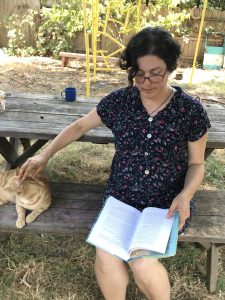 Connect with Jenny:
Connect with Jenny: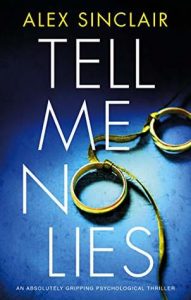 Grace Dalton watched her husband die after being struck in a hit and run accident. After a brief period of submerging herself in the grief, she begins to move on, speaking with his lawyer to learn of a secret bank account and life insurance. Then she sees her husband, sending her best friend into conniptions for some reason, and she ends up in several bizarre emergency sessions with her psychiatrist. Much of this story, once you get past the repetition (and the repetition continues throughout the book), lacks credibility, such as Grace’s phone sessions with her psychiatrist, and then her best friend dragging her to so many emergency sessions instead of listening to Grace. Her best friend comes across as more like a mean sister, making the ending even less likely. This story had such potential, and then Grace ended up being more crotchety than the damsel in distress. The reader does not need reminding in every chapter that Grace wallowed in her grief for six weeks. The story is in there if you want to earn it! I was graciously given an early copy by Bookouture through NetGalley.
Grace Dalton watched her husband die after being struck in a hit and run accident. After a brief period of submerging herself in the grief, she begins to move on, speaking with his lawyer to learn of a secret bank account and life insurance. Then she sees her husband, sending her best friend into conniptions for some reason, and she ends up in several bizarre emergency sessions with her psychiatrist. Much of this story, once you get past the repetition (and the repetition continues throughout the book), lacks credibility, such as Grace’s phone sessions with her psychiatrist, and then her best friend dragging her to so many emergency sessions instead of listening to Grace. Her best friend comes across as more like a mean sister, making the ending even less likely. This story had such potential, and then Grace ended up being more crotchety than the damsel in distress. The reader does not need reminding in every chapter that Grace wallowed in her grief for six weeks. The story is in there if you want to earn it! I was graciously given an early copy by Bookouture through NetGalley.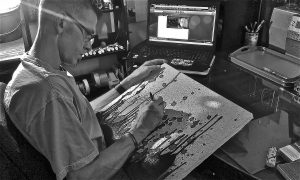 Brian Barnett is a Central Florida artist and designer who specializes in fine line abstract ink and pencil drawings, painting and other mediums. He is also the SO of my high school friend, and though I only know him online, he’s friendly and interesting, and his work is astonishing. I have to share it. After learning about him, follow the links at the end to contact Brian, scope out more of his work, and purchase pieces.
Brian Barnett is a Central Florida artist and designer who specializes in fine line abstract ink and pencil drawings, painting and other mediums. He is also the SO of my high school friend, and though I only know him online, he’s friendly and interesting, and his work is astonishing. I have to share it. After learning about him, follow the links at the end to contact Brian, scope out more of his work, and purchase pieces.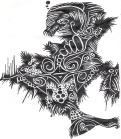 Tell me about your artistic process, from ideation to finished product, including medium / material, schedule, environment, and inspirations tangible and abstract.
Tell me about your artistic process, from ideation to finished product, including medium / material, schedule, environment, and inspirations tangible and abstract. The process for my art can take a second or be meticulously planned for weeks months or even years. For example, if I’m working with pens, the process is almost instant. I don’t have a pre-planned route or image I am seeking when I create using the pens; it’s just free and letting the ink flow as it wants to create the images.
The process for my art can take a second or be meticulously planned for weeks months or even years. For example, if I’m working with pens, the process is almost instant. I don’t have a pre-planned route or image I am seeking when I create using the pens; it’s just free and letting the ink flow as it wants to create the images. 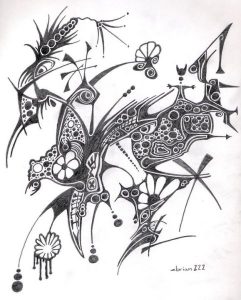 But if I’m working on a sculpture, I may have thought and planned it for months, looking through the bins of mixed media for that certain piece that make it perfect. I don’t have a preferred medium. I tend to draw mostly as it is most accessibleof my mediums at any time. I prefer lately to work with my hands, sculpting or building creations, with my next step being woodcarving and the eventual goal of teaching myself and being able to carve my wife’s face out of wood or sculpt from clay. I’m constantly challenging myself with new mediums.
But if I’m working on a sculpture, I may have thought and planned it for months, looking through the bins of mixed media for that certain piece that make it perfect. I don’t have a preferred medium. I tend to draw mostly as it is most accessibleof my mediums at any time. I prefer lately to work with my hands, sculpting or building creations, with my next step being woodcarving and the eventual goal of teaching myself and being able to carve my wife’s face out of wood or sculpt from clay. I’m constantly challenging myself with new mediums.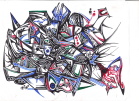 How do you find buyers—short-term and long-term strategies and venues; do you create art from your own vision and / or commission art?
How do you find buyers—short-term and long-term strategies and venues; do you create art from your own vision and / or commission art?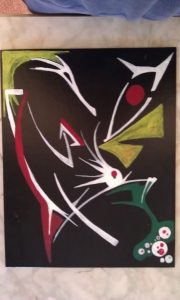 I do markets and online sales, hang in local galleries. and sometimes I post randoms for sale, but when I found this talent, I didn’t find it for fortune. I found it for sanity. I am always honored to sell a piece. To me, it means that person liked something that came from inside of me enough to spend money on it and hang it in their house. To me, that’s amazing. To me, it means I touched them; they connected with the image or the sculpture. That’s a priceless payday for an artist to see the viewer connect. I have done and am available for commissions—I love to work with a client to reach the perfect piece.
I do markets and online sales, hang in local galleries. and sometimes I post randoms for sale, but when I found this talent, I didn’t find it for fortune. I found it for sanity. I am always honored to sell a piece. To me, it means that person liked something that came from inside of me enough to spend money on it and hang it in their house. To me, that’s amazing. To me, it means I touched them; they connected with the image or the sculpture. That’s a priceless payday for an artist to see the viewer connect. I have done and am available for commissions—I love to work with a client to reach the perfect piece.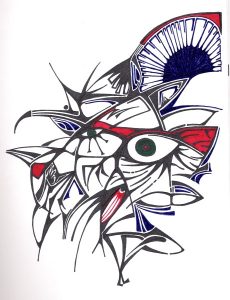 Describe your support system online and IRL—who are your biggest cheerleaders?
Describe your support system online and IRL—who are your biggest cheerleaders? So, when it comes to my support, my art is my release that allows the people who support me to connect to me in a way they wouldn’t have been able to before. If it weren’t for the Orlando art community’s support, and that of my family and friends, I couldn’t have as much joy on this mission of art as I do.
So, when it comes to my support, my art is my release that allows the people who support me to connect to me in a way they wouldn’t have been able to before. If it weren’t for the Orlando art community’s support, and that of my family and friends, I couldn’t have as much joy on this mission of art as I do.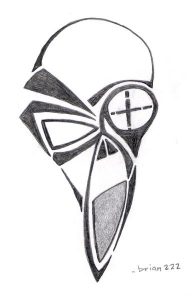 How does your life influence your art and vice versa?
How does your life influence your art and vice versa?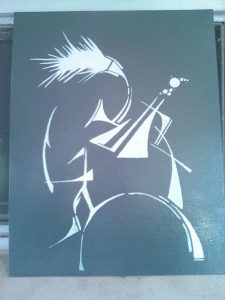
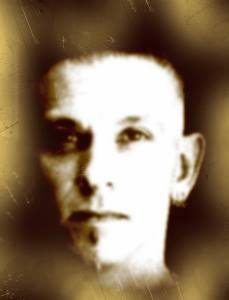 Connect with Brian:
Connect with Brian: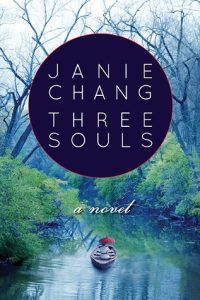 Leiyin learns she has three souls upon her death, souls who explain they are trapped with her ghost until she atones for some egregious transgression in her mortal life. They witness her, through memories, rebel against the patriarchal traditions of her father, suffer the consequences, and live with regrets for her naivety. In the early 20th century, Leiyin controls little about her life, and this during a civil war and Japanese aggression. Epiphanies hit her hard and fast reliving her memories. She must communicate with mortals to appease the gods by rescuing the fates of her loved ones in order to ascend to the afterlife with her souls. Chang’s blending and bending of Chinese culture and history create a compelling narrative of inadvertent espionage and acceptance of one’s place in society. The speculative elements placing Leiyin outside her own story fascinate the reader as they astonish Leiyin. Chang’s novels are educational in many ways, to the anticipated appreciation of readers of historical fiction, speculative fiction, and fans of Tatiana de Rosnay and Laura Spinella.
Leiyin learns she has three souls upon her death, souls who explain they are trapped with her ghost until she atones for some egregious transgression in her mortal life. They witness her, through memories, rebel against the patriarchal traditions of her father, suffer the consequences, and live with regrets for her naivety. In the early 20th century, Leiyin controls little about her life, and this during a civil war and Japanese aggression. Epiphanies hit her hard and fast reliving her memories. She must communicate with mortals to appease the gods by rescuing the fates of her loved ones in order to ascend to the afterlife with her souls. Chang’s blending and bending of Chinese culture and history create a compelling narrative of inadvertent espionage and acceptance of one’s place in society. The speculative elements placing Leiyin outside her own story fascinate the reader as they astonish Leiyin. Chang’s novels are educational in many ways, to the anticipated appreciation of readers of historical fiction, speculative fiction, and fans of Tatiana de Rosnay and Laura Spinella.
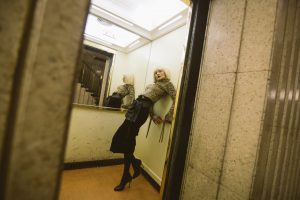

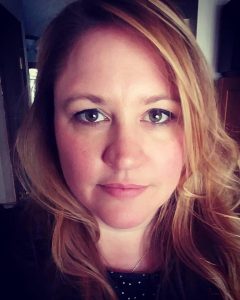
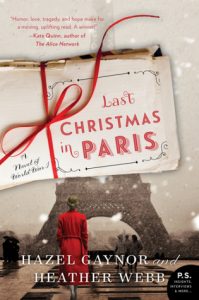 Describe your writing process, including schedule, environment, strategies / techniques, and inspirations abstract and material.
Describe your writing process, including schedule, environment, strategies / techniques, and inspirations abstract and material.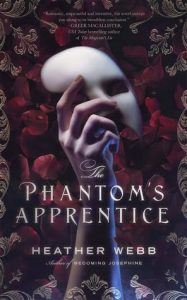 Walk me through your publishing process, from final draft to final product, explaining who on your team does what, and what marketing you do as the author. Elaborate upon going international, winning awards, and public speaking, please.
Walk me through your publishing process, from final draft to final product, explaining who on your team does what, and what marketing you do as the author. Elaborate upon going international, winning awards, and public speaking, please.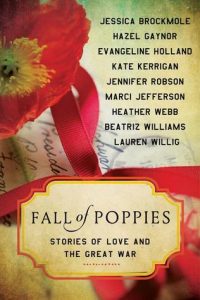 Tell me about your support system—online and IRL—and how that may shift during the progress from idea to launch. Who are your biggest cheerleaders?
Tell me about your support system—online and IRL—and how that may shift during the progress from idea to launch. Who are your biggest cheerleaders?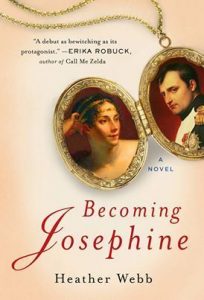 Did I read that you had a dream about Josephine, inspiring you to change your career from high school teacher to author? I find that astonishing! How does your life influence your art / work and vice versa? Where does research fit in, and do you have assistance?
Did I read that you had a dream about Josephine, inspiring you to change your career from high school teacher to author? I find that astonishing! How does your life influence your art / work and vice versa? Where does research fit in, and do you have assistance? What do you love most about your creativity? (You may shamelessly plug your editorial services here as well!)
What do you love most about your creativity? (You may shamelessly plug your editorial services here as well!)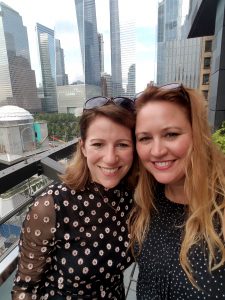
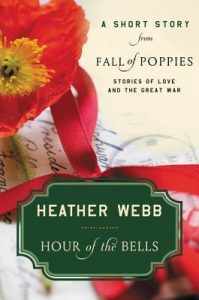 Connect with Heather:
Connect with Heather: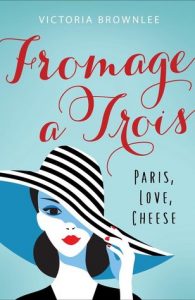 After eight years in a monogamous relationship, Ella expected a proposal at their favorite restaurant. That’s not what she got. So she runs away to Paris to rediscover herself as the adventurer she was before the relationship. Yearning for the most Parisian experience, she falls into a bet to taste all 365 varietals of French cheese, becoming an Instagram sensation. However, she still chooses glamour over substance in men; though the romance is inevitable, it’s still fun to watch Ella grow and evolve. Brownlee creates a character as enchanting and quirky as Sophie Kinsella’s Shopaholic Becky. But she goes beyond Ella’s endearing personality to educate readers on French cheeses, with delectable descriptions and fascinating anecdotes and history, even referencing Napoleon. Fans of Kinsella, foodies, Francophiles, and romantics will appreciate this lovely story that I was fortunate to receive from Amberjack Publishing through NetGalley.
After eight years in a monogamous relationship, Ella expected a proposal at their favorite restaurant. That’s not what she got. So she runs away to Paris to rediscover herself as the adventurer she was before the relationship. Yearning for the most Parisian experience, she falls into a bet to taste all 365 varietals of French cheese, becoming an Instagram sensation. However, she still chooses glamour over substance in men; though the romance is inevitable, it’s still fun to watch Ella grow and evolve. Brownlee creates a character as enchanting and quirky as Sophie Kinsella’s Shopaholic Becky. But she goes beyond Ella’s endearing personality to educate readers on French cheeses, with delectable descriptions and fascinating anecdotes and history, even referencing Napoleon. Fans of Kinsella, foodies, Francophiles, and romantics will appreciate this lovely story that I was fortunate to receive from Amberjack Publishing through NetGalley.